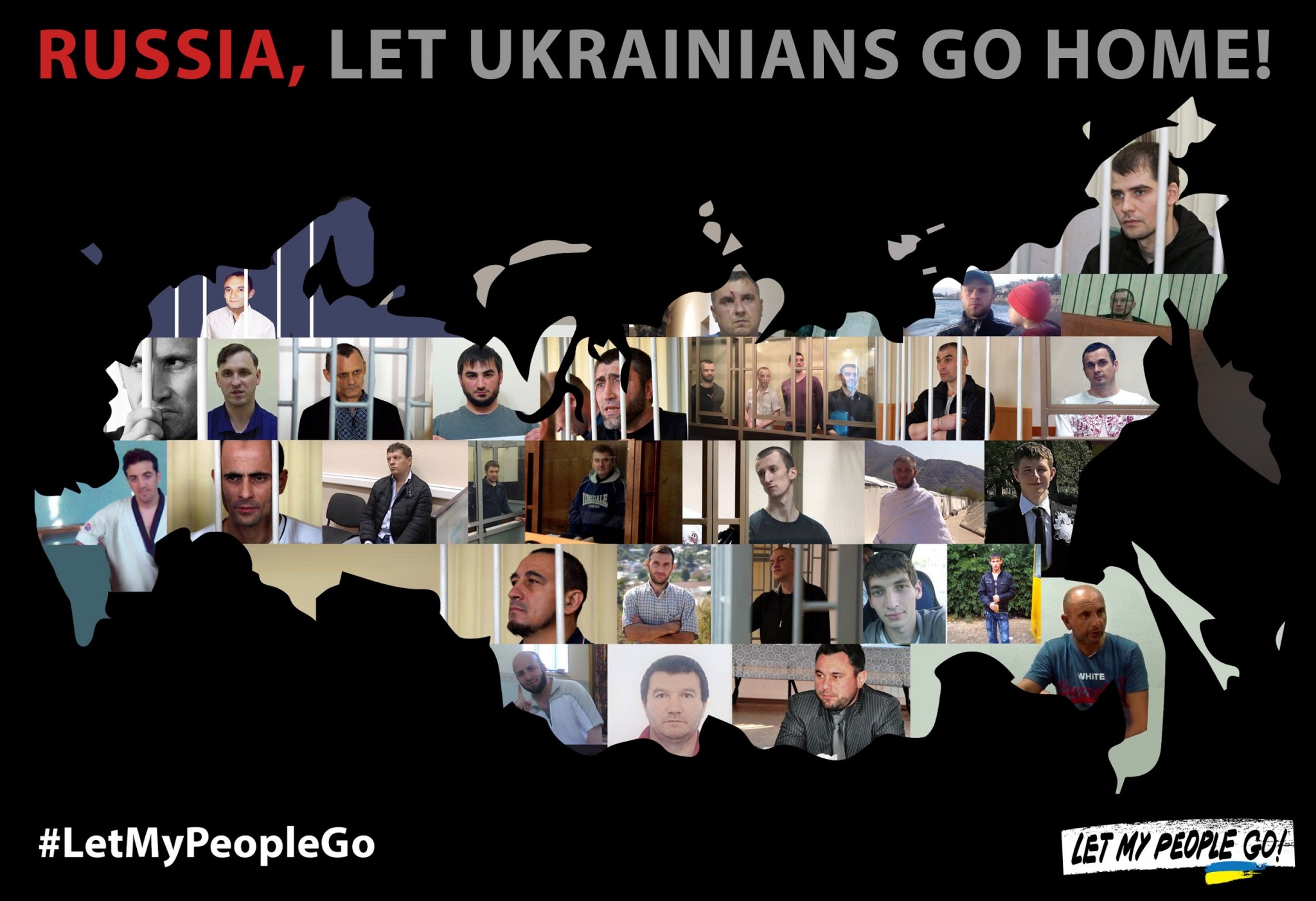In the resolution adopted on 16 March 2017, the EP deplores the lack of freedom of expression and association in Crimea and forced imposition of Russian citizenship on its residents, as well as discrimination and intimidation of Crimean Tatars, ban of the Mejlis (their self-government body) and persecution of its leaders.
“Crimean Tatars, the indigenous people living there for centuries, [who have been] intimidated by the imperial will of the earlier Russian czars, then Stalin, and now by the Putin regime, were offered a political deal: puppet “autonomy” under Russian rule [in exchange] for the acceptance of the annexation. They are the people of honor, and therefore they refused this deal,”
stressed Polish MEP Anna Fotyga during the debate.
Read more: Entire indigenous population of Crimea endangered with looming Mejlis ban
Moscow must pay, Kyiv and Brussels should not sit back
The resolution “Ukrainian political prisoners in Russia and the situation in Crimea” calls to impose additional sanctions against individuals responsible for major rights violations in Russia and Russian-occupied territories, including the freezing of their assets in EU banks.
“This means that Ukraine has to immediately make every possible effort to provide EU countries with reliable lists of the violators along with the relevant evidence base that can be a reason for introducing such targeted restrictions,”
reads the conclusion of the Media Initiative for Human Rights.
The EP resolution entrusts the European Council with finding a way to support Ukraine in the International Court of Justice to hold the Kremlin accountable for financing terrorism in Donbas and discriminatory acts in Crimea.
Read more: Ukraine vs. Russia in The Hague: key arguments
By this resolution, the European Parliaments acknowledges that:
- the multiple credible reports of torture, cruel and humiliating treatment of Ukrainian prisoners go uninvestigated by Russian law enforcement bodies,
- inhumane conditions in jails endanger their physical and mental health,
- attorneys, human rights activists, and journalists who try to counter the political repression are targeted themselves,
- the practice of transferring prisoners to the remote areas of Russia is intolerable as it sharply limits their communication with relatives and rights advocates.
The document reminds that Russia, recognized as the occupying power by the UN General Assembly, is bound by a number of obligations under international law. Specifically, it has to grant unimpeded access to Crimea for monitoring missions, human rights defenders, lawyers, and journalists. At the same time, the MEPs hope that the Ukrainian government for its part will simplify the procedures these categories of visitors need to comply with for traveling from mainland Ukraine to the Crimean peninsula.
Read more: UN officially recognized Russia as an occupying power in Crimea
The European Parliament expects that the EU External Action Service, EU Mission and embassies of the member states to Russia will closely follow the cases of Ukrainian Kremlin’s hostages and their treatment in prisons. Human rights situation in Crimea, states the resolution, should be under the continuous control of the EU Special Representative on Human Rights. The resolution finds necessary the EU support for Ukrainian and Tatar media working for Crimea, as well as the initiatives to protect the cultural heritage of ethnic communities in the occupied territory.
Far left and far right parties abstained or voted against

The resolution was adopted by 451 votes (with 73 against it and 86 abstained).
Anton Shekhovtsov, a researcher of the European far right, notes that the Europe of Nations and Freedom (ENF) group in the European Parliament, dominated by Marine LePen's Front National, decided to ABSTAIN during the vote. Given that this group had previously voted AGAINST, this hints at a behind-the-scenes game between the Front National and the Kremlin. Curiously, the co-president of the ENF group Marcel de Graaf from Geert Wilders' Party for Freedom rebelled against the decision and voted AGAINST, as did the FPÖ and Lega Nord (both have recently signed agreements with Putin's United Russia party), Alternative for Germany (AfD) and Party for Freedom (PVV), Shekhovtsov writes.
Do not forget any name

Clause Four of the resolution names thirty Ukrainian citizens who are languishing in Russian custody. Note that this list is not exhaustive. Here are the prisoners who need to be remembered alike:
- in the summer and fall of 2016, Russian security officers seized Andriy Zakhtey, Redvan Suleymanov, Volodymyr Prysich, Dmytro Shtyblikov, Oleksiy Bessarabov, Volodymyr Dudka, Oleksiy Stohniy, and Hlib Shabliy in the trumped-up “saboteur case,”
- in October 2016, the occupiers captured five Crimean Muslims: brothers Teymur and Uzair Abdullayev, Emil Dzhemadenov, Rustem Ismailov, and Ayder Saledinov,
- the resolution also does not mention the two Ukrainian activists detained in Crimea: Euromaidan participant Mykola Shyptur, who has been in jail since March 2014, and Volodymyr Balukh, arrested at the end of 2016 for installing a Ukrainian flag on his house and commemorating the fallen heroes of the Ukrainian Revolution of Dignity.
As Latvian MEP Sandra Kalniete said to the point during the debate, the resolution of the European Parliament
“should remind Putin that no one is forgotten and nothing is forgotten. [...] The fate of innocent victims is not forgotten. There should be no normalization of EU relations with Russia without the release of these political prisoners. Let us make it clear to Putin and his political and business partners in Europe.”
Watch: Why is the Kremlin taking Ukrainian political hostages? | VIDEO





